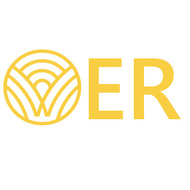
(View Complete Item Description)
The "Future Ready" content focuses on civics and the United States Constitution. It explains the Constitution's purpose and how it was ratified. The objectives are to teach about power distribution between national and state governments, principles of the American constitutional federal republic, the role of law in the political system, government institutions created during the Revolution, and different levels of government in the US.Key terms related to the Constitution are highlighted, such as amendments, bicameral legislature, Bill of Rights, checks and balances, Declaration of Independence, federalism, Preamble, separation of powers, and unalienable rights.The content emphasizes the Constitution as the highest law and the relationship between the federal government and states. The Bill of Rights, the first ten amendments, is explained along with specific rights and protections. Important amendments like the Fourth, Fifth, Sixth, Ninth, and Tenth are described.The passage also covers the separation of powers and checks and balances in the American government to prevent any one branch from becoming too powerful. It concludes with questions to test understanding, including the purpose of the Preamble, the meaning of domestic tranquility, the provision for common defense, and the importance of the separation of powers.
Material Type:
Homework/Assignment,
Lesson,
Module,
Reading,
Unit of Study
Authors:
Benjamin Troutman,
Washington OSPI OER Project



















